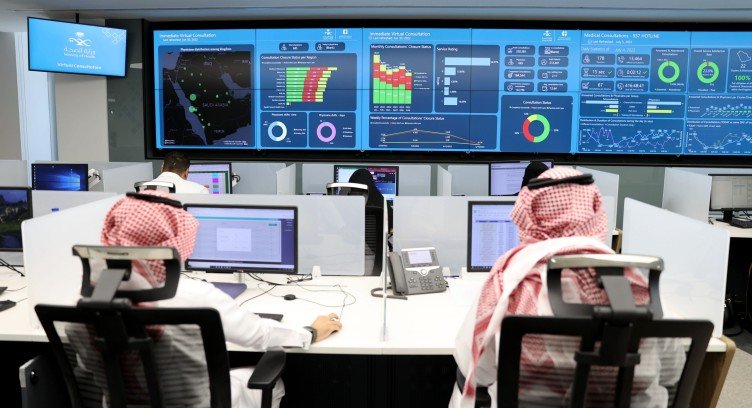The Silent Heroes of Hajj: Orchestrating Healthcare for 1.8 Million Hajj Pilgrims
Over 354 health care facilities were prepared as part of the Tremendous effort, with assistance from over 36,000 health professionals from various health sectors and over 7,600 volunteers. During the Hajj, these facilities and staff served almost 400,000 pilgrims who needed various health care services.
The services given were both extensive and crucial. Some pilgrims required sophisticated medical interventions, including as open-heart surgery for 50, cardiac catheterization for 800, and dialysis for almost 1,600. Furthermore, considering the desert conditions, the frequent difficulty of heat stress was managed expertly, with 8,000 pilgrims receiving appropriate care.
A Personal Perspective on Orchestrating Success: The Critical Role of Leadership and Team Unity in Hospital Commissioning
Navigating the complex maze of hospital commissioning is a difficult task, with high stakes and little margin for error. Beyond the technical and logistical requirements of this role, it is the strength of human factors - visionary leadership and teamwork - that actually sail the ship toward successful hospital commissioning.
My experiences with various commissioning, first operation planning, and launch procedures have confirmed the critical significance of leadership in these processes. Leaders are more than just figures of authority; they are the compass that guides the ship through rough and calm waters alike. They are visionaries who can see beyond the walls of a hospital or clinic to realize what each should ideally represent in terms of healthcare service delivery.
Is EMR Created Only for Physicians? A Call for Comprehensive Use in Healthcare Management
EMRs contain a wealth of patient data, from medical histories to diagnostic tests, treatment plans, medication records, allergies, and immunization dates. More than a mere catalogue of health information, this data can offer deep insights into patient behaviors, health trends, and treatment outcomes if properly leveraged.
These records are not just beneficial for the continuity of care at a physician's level, but they also hold immense potential for planning and enhancing the overall hospital management system. For instance, anonymized patient data from EMRs can inform the distribution of resources in a hospital, influence the design of care plans, and enhance service levels.
Harnessing Daily Huddles: A Key to Effective Healthcare Management
A morning huddle is a short meeting held at the start of each working day. It is a time when hospital leadership comes together to share updates, review performance, recognize wins, identify areas for improvement, and plan for the day ahead. The structure and organization of these huddles at Fakeeh University Hospital is worth a detailed exploration.
Our morning huddles kick off with a report from the duty manager, followed by the sharing of daily updates and important issues about the hospital by myself, as the CEO. The updates continue with the Chief Medical Officer (CMO), Chief Nursing Officer (CNO), and subsequently each department leader shares their updates.
Five Key Insights from the "Future-Proofing the Health of Nations" Panel Discussion
Last week, I had the privilege of moderating a thought-provoking panel discussion at the Museum of the Future, an institution that inspires creativity and innovation. Organized by WSBF, the panel centered on the theme "Future-Proofing the Health of Nations." I was thrilled when Merzi Sodawaterwala approached me to lead a panel of esteemed experts, including Ashish Ipe Koshy (CEO of G42 Healthcare) and Hicham MIRGHANI (Corporate Affairs Director GCC at AstraZeneca).
The conversation was rich and insightful, and I am delighted to share five key takeaways from our discussion
Building a State-of-the-Art Academic Hospital with Cutting-Edge Technology & Compassionate Care
I had the pleasure of joining Abrar Hussain on 'The Market Makers in Middle East & Africa - Podcast to discuss a variety of healthcare topics that will surely spark your interest! 🎙️
💡 Dive into these captivating topics:
🔸 The journey of creating the groundbreaking Fakeeh University Hospital in UAE, a $500M investment that's transforming healthcare 💰🏥
🔸 Merging state-of-the-art technology with heartfelt patient care for better outcomes 💙🤖
🔸 The power of multi-disciplinary collaboration in driving exceptional patient care 🤝🩺
🔸 A glimpse into the future of healthcare and the role of emerging technologies 🚀🔬
Greening Healthcare in the Middle East: A Call to Action for Net-Zero Emissions
As healthcare professionals, we are committed to caring for people and healing communities. However, we cannot ignore the environmental impact of our work, especially in light of the pressing global challenge of climate change. In fact, the healthcare sector is responsible for 5% of global emissions, making it a significant contributor to the problem. It is our responsibility to consider the environmental impact of healthcare and work towards healing both people and the planet.
Smartphones and Smartwatches: Powerful Tools for Public Health Research
Smartphones have transformed into essential medical research tools, thanks to the collaboration of ingenious engineers and dedicated clinicians. The data generated by smart mobile devices and smartwatches is now being harnessed to advance medical research, ultimately improving patient care at hospitals and clinics.
The Key to Reducing the Burden of Diabetes on Employers and Communities in the GCC
Modern lifestyles offer numerous comforts, but they also come with long-term consequences, such as the rise in lifestyle-related diseases like diabetes. In the GCC countries, employers bear 90% of healthcare costs, making chronic illnesses like diabetes a significant concern.
To achieve healthier communities, companies must work closely with hospitals and healthcare providers to develop collaborative solutions that help reduce the negative effects of diabetes and other chronic illnesses.








